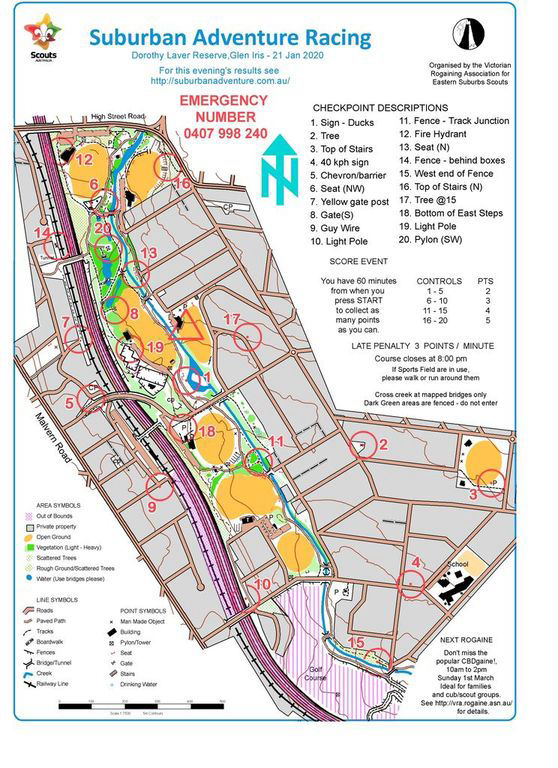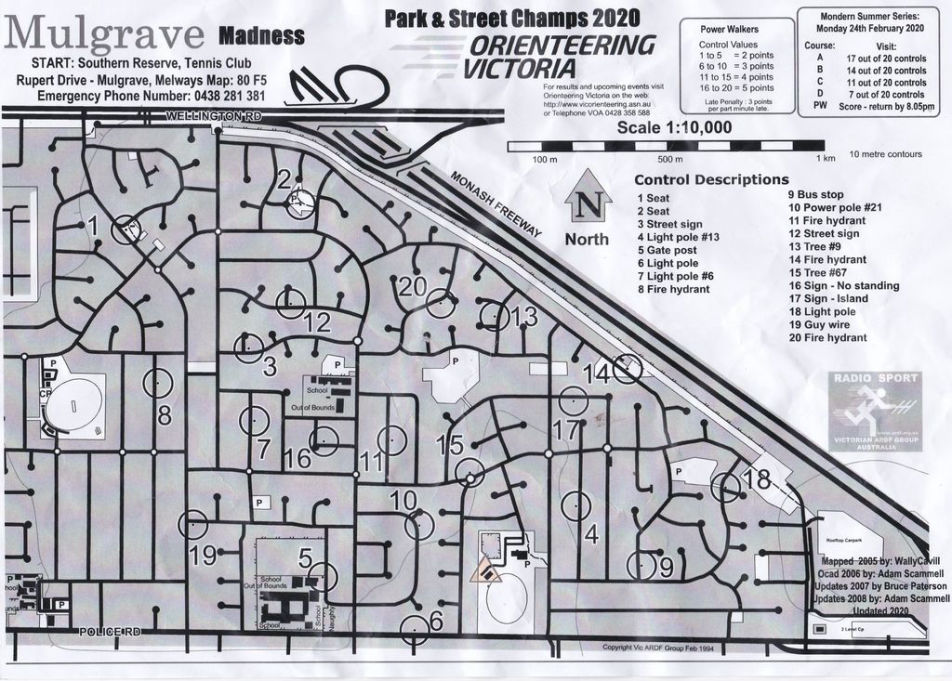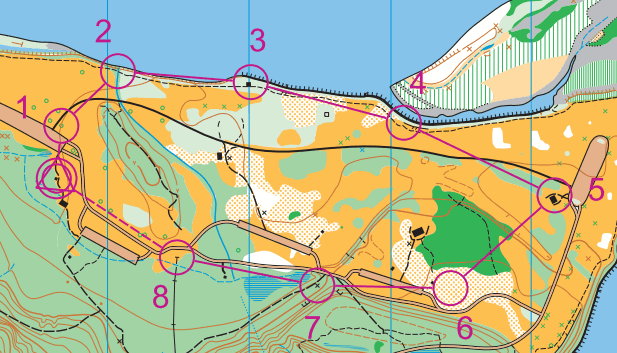
Score Course
This is the most common type of course in our series.
The challenge in a Score Course is to accumulate as many points as possible within a given time; all rogaines are score courses.
In some score courses, all controls are worth the same - so it really comes down to visiting as many controls as possible. More commonly, controls are worth different numbers of points - in a rogaine, the first digit of the control number tells you the value of the control.
The key benefit of score courses is that "one size fits all" - one can put say 20 controls onto a map and then let the participants decide how far they will walk or run.
Score courses require an additional skill - due to the severe penalties for arriving back after time. The ability to plan a route that is achievable in the time allocated with options that can be added or dropped as time runs out is paramount.
If you've never done a Score Course before - check out Score Course Strategy for Beginners.

